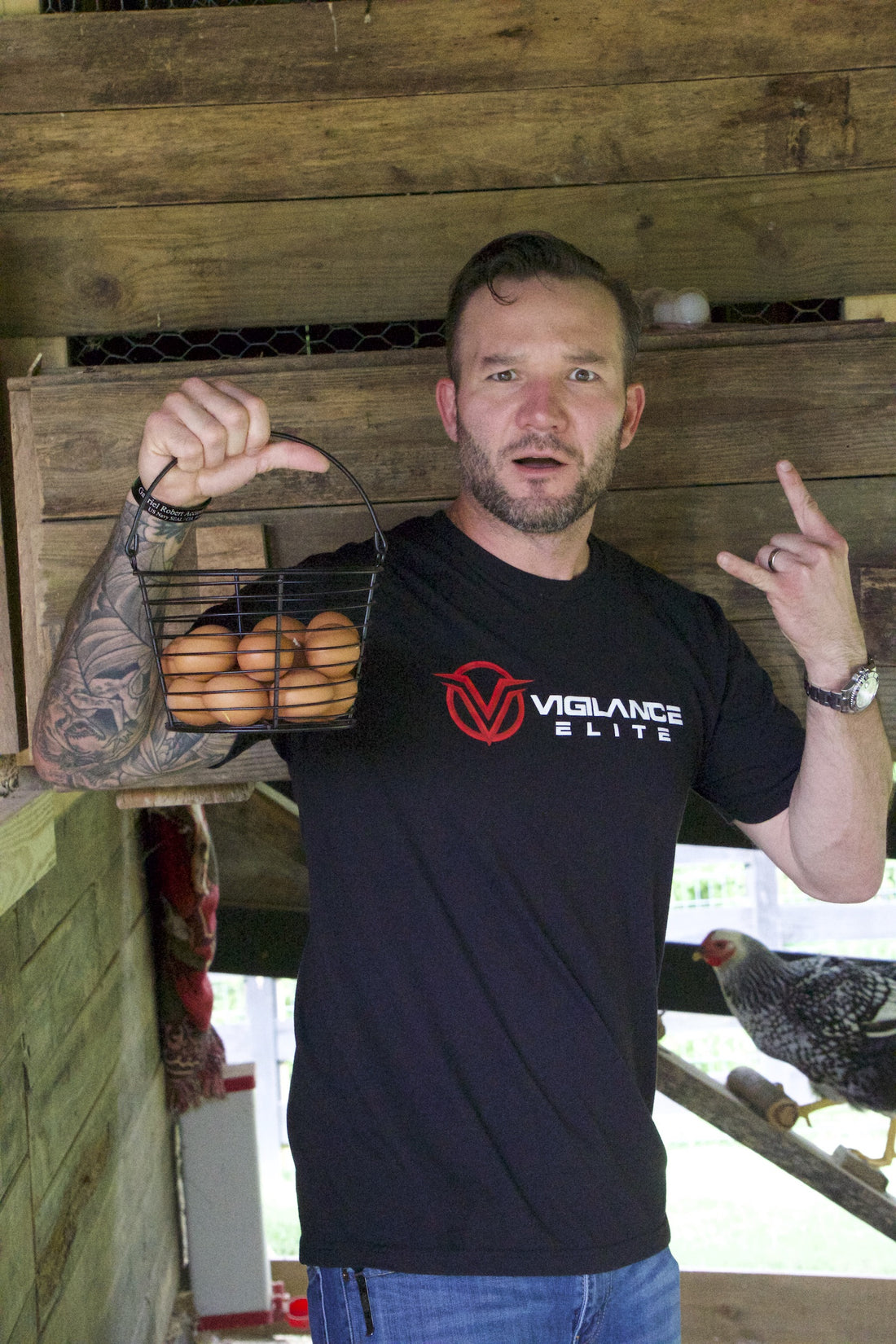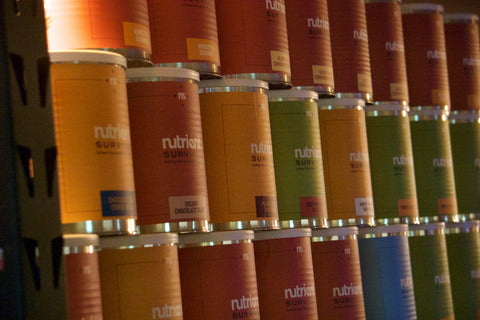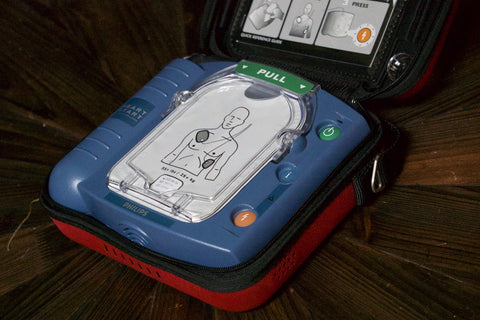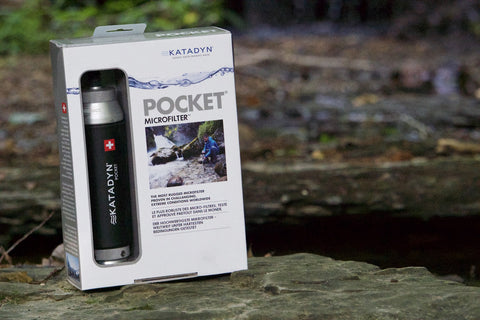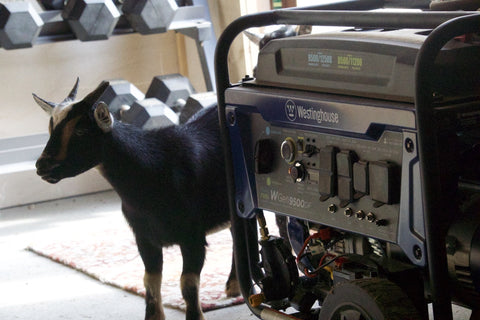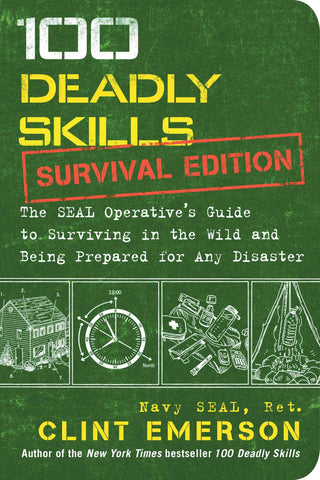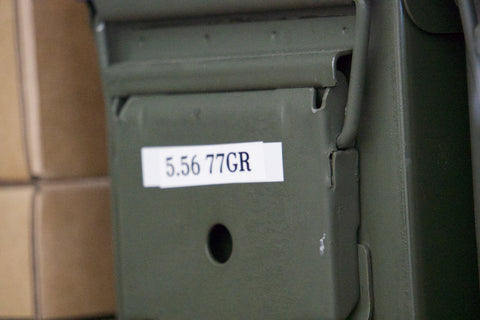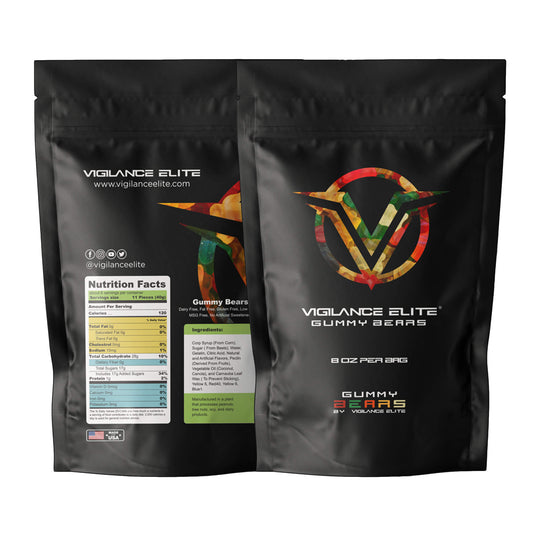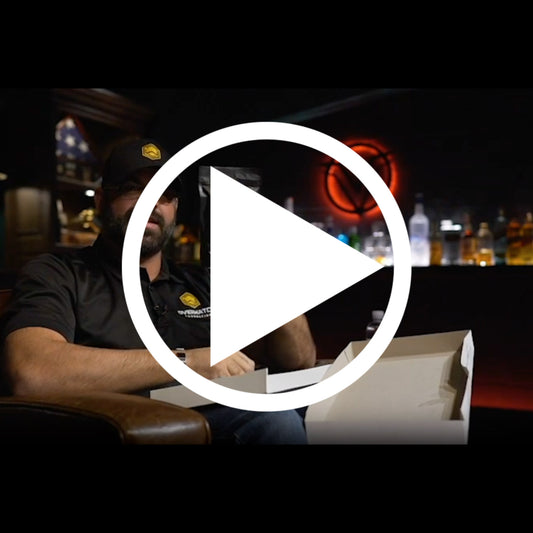Seven Things I'm Doing To Prep Right Now
Location
For starters, let's identify my location. I live in a rural area of TN and I prep accordingly. If you haven't read my last post yet, it might help with determining your plan, which is the most important thing to do before you start buying supplies.
Prep Slow and Steady
If you buy all of the supplies at once, you'll likely get overwhelmed and then have a ton of assets with no systems in place. The idea is to know how to use all of the gear and have organized systems for the supplies. Also, try not to fall into panic buys if you do not absolutely need the items immediately. The goal is to consistently build resources over time and to maximize your budget.
This post will cover seven things I'm doing right now to prep circa late summer 2020.
Here is a link to my Amazon shop that has my prepping shopping supplies list as well as some other gear.
https://www.amazon.com/shop/vigilanceelite
1. Food
Freezer
Food storage is one of the cornerstones of prepping. A good freezer is a great prepping asset. You'll be able to store more immediate use food items on hand.
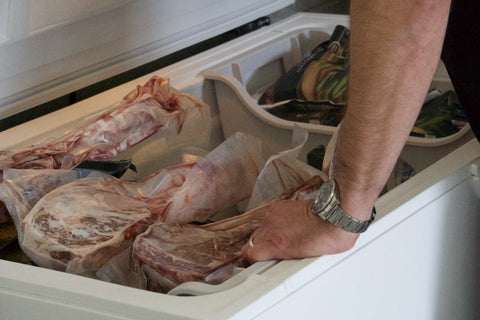
Right now freezers are hard to come by online and many stores are backordered. I searched online at the beginning of the pandemic but everything was out of stock or a long backorder. I lucked out and happened to run into one in stock at Lowes a few months back.
What if you can't find a freezer in stock?
If items have limited availability, check used outlets like Craigslist, Ebay or even yard/estate sales. You might get lucky.
I load my freezer with two key food groups: protein and vegetables. Ideally, I'd have a freezer for each staple food group but it is not in the cards or the budget for me at the moment.
Slow and steady is the recurring theme of this post. I did not immediately pack this freezer the week I got it. I saw good deals here and there at the store and stocked up accordingly.
Connecting with local farmers is also a great way to load your freezer. They often have great deals on meat and fresh produce. This food is often better than what you'd get at the grocery store too. Look for the farmers markets and butcher shop sales.
Chickens
Katie Jean and I also decided to get chickens this year. It took about six months for them to start producing but when they are laying, we get about an egg a day per chicken. We feel pretty solid with eight chickens on the farm.
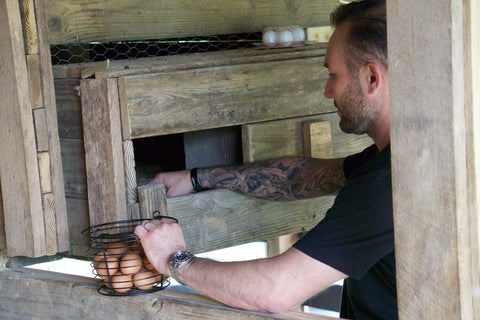
Having chickens also comes with the responsibility of caring for them. Nothing like seeing your birds walking around outside of your fence and having to chase them down! We built a coop first and are now building a run to help keep from losing track of them.
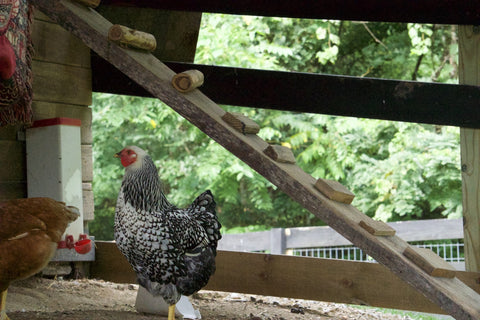
We're still learning but, so far, we love having the chickens on the farm.
Long Term Food Supply
In addition to the freezer and the chickens, I've also added an emergency food supply to my prepping. After a good amount of research, I landed on Nutrient Survival for this supply.
Nutrient Survival was based on the Zone Diet and has a 25 year shelf life. This stuff has the proper nutritional values to keep your body and mind sharp when you need it most. This was a key factor in my decision.
The Specs on Nutrient Survival (from Nutrient Survival)
Think of protein as your body’s building block for muscle. But it’s not just your muscles’ best friend - every part of your body, from cells to bones and skin to hair, contains protein and it’s a major player in repairing tissue. The average person's body weight is made up of 16 percent of protein - it’s mainly used for growth, health, and overall body maintenance.
Exactly how much protein you require daily can be calculated by multiplying your weight by 0.36, or about 54g for a 150lb person. Keep in mind: more protein isn't necessarily better. Overconsumption can lead to weight gain, intestinal discomfort and even kidney damage, so make sure you aren’t overdoing it.
There are 14 vitamins your body needs to thrive and it’s best to get them through your food rather than swallowing a bunch of pills. When you smell and taste food, you trigger your digestive enzymes to get ready for what’s coming! It’s like priming the pump for the best absorption possible. When you swallow vitamins, you bypass this amazing stage of digestion.
The human body requires a perfect balance of 14 minerals like iron, potassium, and the one that gets tons of attention - calcium. Just like vitamins, it’s best to get them through your food instead of pills. Prime that digestive system for best absorption!
Keeping your body fueled with the proper nutrition will also help keep your mind sharp. This is extremely important when the chips are down because stress will be high. You don't want to be loaded on junk food or empty carbs if you have a choice.
2. Medical
If the luxury of an available hospital is suddenly off the table, you will want to have as much basic medical resources on hand. One thing beyond the basic first aid kit that I opted for was an Automated External Defibrillator (AED).
I always see TCCC pushing to the front of my feed on the subject of medical training on social media. I get it. It's tacticool. However, I would like to give you some food for thought when prepping medical.
There are approximately 1.5 million heart attacks/strokes in the US yearly.
There are approximately 36,000 gun related deaths and approximately 22,000 of which are suicides. Meaning about there are approximately 14,000 non self-inflicted gun related deaths per year in the US.
What I'm getting at is that you are far more likely to encounter the need for an AED than your tactical blowout kit for treating a GSW. Stress will be high and that increases the odds for heart related issues.
Also, think of your family members who may be prone to health complications. This device just might save your life or your loved ones.
The cool thing about the AED. You open the box, push the button and the automated instructions begin.
Am I saying don’t get a TCCC kit? Absolutely not. I think those kits are also a valuable addition to your preps. The reason I'm bringing up the AED is that it might very well be more important than the next tactical purchase. It's all about priorities and probability.
3. Water Filtration
Clean water is going to be vital in a survival situation. I'm a huge fan of the LifeStraw and have many of them in my current systems.
When the Covid-19 pandemic began, I started to wonder if my water filtration systems filter viruses. They do not.
This led me to look for a more sterile system and I landed on the KATADYN Pocket Microfilter. This unit isn’t cheap by any means but the enhanced filtration capability gives me peace of mind.
Specs on KATADYN Pocket Microfilter (from KATADYN)
- Redesigned with a comfortable pump handle grip and outlet tube for increased ease of use
- Durably constructed for a lifetime of use
- Removes particles, bacteria, cysts and parasites larger than 0.2 microns, including protozoa such as giardia and cryptosporidia
- Comes with 2 abrasive pads to clean the pores of field-maintainable ceramic filter
- Ceramic filter is silver-impregnated to inhibit bacterial growth inside its pores
- Katadyn Pocket water filter includes a case and output hose
4. Generator
Wattage
A sufficient power source is a must to maintain a good quality of life. A generator is a big plus if you can afford it. I talked with an electrician and was told a 7,500 watt output would do it for a small house but a 10,000 watt output is preferred for a normal household.
Gas, Propane or Both?
Propane burns cleaner than gas but gas might be what you have available to you in a SHTF situation. I went with a generator that could do both gas or propane. Versatility is valuable to me when prepping.
You’ll also need to decide whether or not you want to go with a mobile or fixed unit. I went with mobile because I figured I might need to move it to another location. Mobile is also easier on the wallet.
5. Propane
I like to have propane on hand in addition to gas. As mentioned previously, it is cleaner burning. It is also a good backup if the power goes out. It can be used to provide heat and also for cooking.
At my house I have an electric range and a propane grill. I also have a gas fireplace. It is good to have options in place in case one system fails. Either way we’ll be able to have heat and cooking capabilities.
If all else failed there, I could cut down a tree in the backyard and go primitive.
6. Books
If the Internet goes down, you won’t have access to the plethora of resources for information. It is a good idea to have books on hand or an offline electronic source. Think of the materials that would be useful to you if the how-to sources from search engines were no longer available.
Here's a list of books I recommend.
7. Organization
This might be the most important part of prepping. Label your containers and know what you have and how to use each system. This is something that I’m constantly pushing for in my own systems. The gear is pretty much useless if you cannot access it when you need it. I mentioned it already in this post but it’s important enough to mention again, slow and steady wins the race.
Organize and master your systems as you build up your preps. Storage containers and a label maker are your friends.
Prompt Family
One thing I would like to add in closing is it might be a good time to prompt your family if they do not prep. Even if it is just keeping more basic first aid and a basic disaster kit, it’ll be better than nothing. 2020 has been a strange year so far to say the least and more people are warming up the idea of prepping now than before.
Delivery
Your delivery is a key takeaway in this action. You do not want to come off like a doomsday prophet. Being genuine and encouraging will likely be much more effective than the gloom and doom approach. Remember, you want them to prep because you care about them. The goal is not to start an argument at the dinner table.

